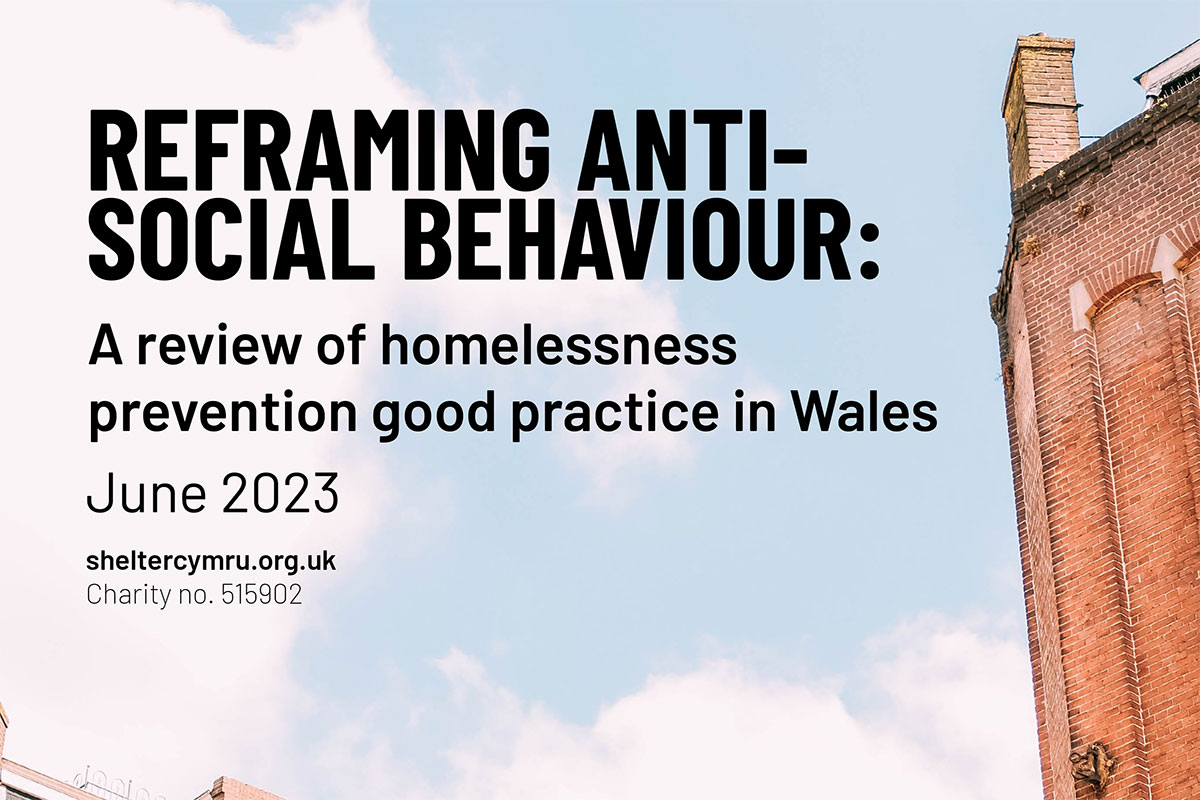You are viewing 1 of your 1 free articles
The housing sector in Wales needs to ‘fundamentally reframe’ its approach to anti-social behaviour, says national charity
A new report by Shelter Cymru has called on the sector in Wales to “fundamentally reframe” its approach to anti-social behaviour.

The report, Reframing Anti-Social Behaviour: A review of homelessness prevention good practice in Wales, looked at the circumstances which lead to eviction for anti-social behaviour (ASB) from social housing in Wales.
This research considered the policies and practices of social landlords when working with cases of ASB, through a mental health and trauma-informed lens.
The charity also looked at how often evictions for ASB from social housing lead to homelessness.
Shelter Cymru reviewed 47 landlords’ websites in Wales (36 housing associations and 11 local authorities) to assess the level of publicly available information, and interviewed five landlords in different areas about their approaches to managing ASB.
The report found inconsistencies in information across each social landlord’s website, problems in accessing support from the health and care sector, and what the charity described as “setting a tenancy up for failure”.
For example, a full ASB policy document was made available on only 17% of landlords’ websites. This was more likely to be the case for housing associations than local authorities (20% compared with 9%).
The interviews conducted by the charity also found that when issues had arisen around someone’s tenancy, housing staff had resorted to processes such as issuing notices, payment plans issued alongside notices, and threats of injunctions.
A more flexible approach, alongside a higher threshold around the types of issues that would typically lead to enforcement, led to significantly better outcomes, the report found.
In one case, the client felt that the “anti-social” label made them feel undeserving of help. They consequently withdrew from the landlord’s attempts to communicate with them.
A housing support worker told the charity: “We need to see the value in making the effort, as disengagement is effectively someone just switching off. By using these process-led approaches, I would argue that’s what the service is doing as much as the tenant.”
Interviewees also expressed concern to Shelter Cymru about access to health services, particularly mental health care.
The report states: “For some, the potential to meet a person’s support needs was deemed unrealistic, though it was felt that a lot of the issues being presented could be prevented sooner if support had been there at the point people were ready to engage with it.”
Ultimately, the report argues for the need to fundamentally reframe how the housing sector understands and responds to the wide range of behaviours that currently come under the umbrella term of ASB.
Ruth Power, chief executive of Shelter Cymru, said: “We need to recognise that ASB is often a stress response to toxic environments or difficult past experiences. Successful prevention means understanding people’s unique circumstances and triggers in order to prevent them going into that stress response.
“This type of work is relationship-based, person-centred and support-intensive, but is proven to deliver consistently good outcomes for the individuals involved.
“There is evidence from Shelter Cymru’s casework that some challenging and complex cases are continuing to fall through the net, because practices are too process led and engagement is inappropriate or inadequate or the support needs of the alleged perpetrator are simply not being identified.
“A significant number of the ASB cases we reviewed involved tenants with complex needs who were not receiving adequate or timely support, either for themselves or members of their family.”
On a positive note, Ms Power said this process of rethinking ASB has begun in Wales and many social landlords were investing in restorative and trauma-informed approaches as key enablers for changing the way tenancies are managed.
But she said there was still a need to be better equipped with resources and updated national guidance to help ensure that good practice was adopted more consistently across Wales.
A Welsh government spokesperson said: “We continue to focus on the commitments set out in our Ending Homelessness Action Plan to ensure homelessness is rare, brief and unrepeated, and continue to build on the enormous progress made in the social housing sector to end evictions into homelessness.
“The findings of this report will be considered as we continue to work with partners to further embed the work undertaken so far to end evictions into homelessness.”
Sign up for our Wales newsletter
New to Inside Housing? Click here to register and receive our Wales round-up straight to your inbox
Already have an account? Click here to manage your newsletters











